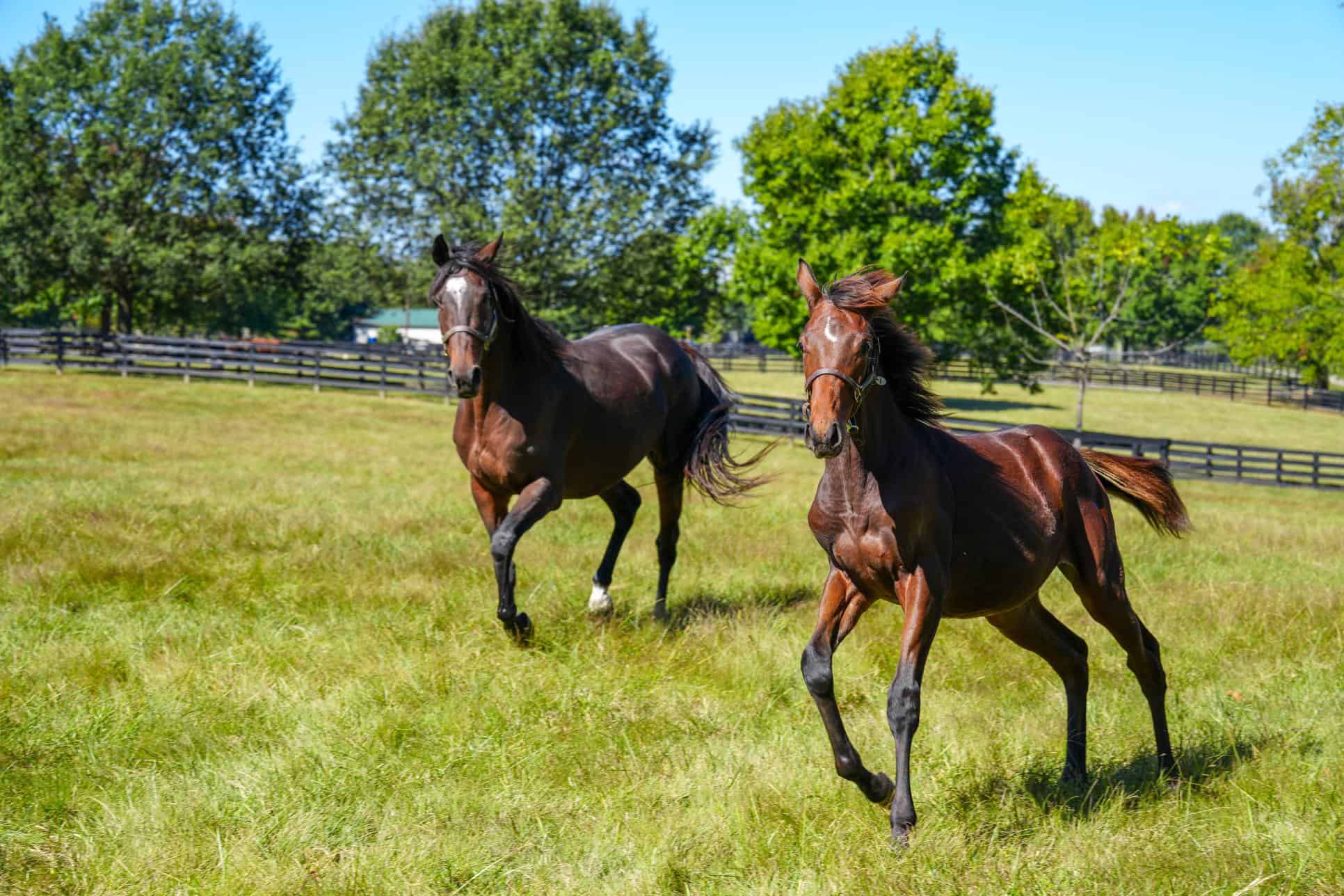Reproductive Care For Your Mare

Breeding your mare is a big responsibility, and it can bring big rewards, too. Who doesn’t love the sight of a knobby-kneed, wobbly foal taking his first steps? If you want to breed your mare, there’s a lot to learn about equine reproduction. One of the most important things to do is learn everything you can about reproductive health and mare care.
Healthy, happy mares have more successful breeding outcomes and produce healthy, happy lineages.
Here’s what the team at Woodside Equine Clinic wants you to know about mare breeding.
Preparing Your Mare for Breeding
Once you decide to breed your mare, the first step is to bring her to your veterinarian for a complete equine fertility evaluation. An experienced equine veterinarian can help:
- Determine your mare’s fertility levels
- Address any fertility issues with appropriate interventions
- Figure out the best breeding season and conditions for your horse
During the breeding season, you’ll need to pay close attention to giving your mare the best nutrition possible. Your veterinarian can help you give your mare the right balance of protein, key minerals like calcium and phosphorus, and vitamins.
As you’ll see from this fact sheet shared by Oklahoma State University (OSU) Extension, the exact mix of nutrients will depend on your horse’s body condition. A skilled equine veterinarian will be able to help you with this all-important process.
Caring for an Expectant Mare
Once your mare is confirmed to be carrying a foal, you and your veterinarian should work together to monitor her health. Giving your horse the exact right balance of nutrients becomes more important than ever. Consult with your equine veterinarian for the ideal ratio of carbohydrates, protein, minerals, and vitamins.
Giving her too much or too little can critically impact her health and the health of her foal. Because of this, it’s critical to keep up with all your mare’s veterinary appointments during this time.
Your mare should also have multiple ultrasounds to monitor her health and her foal’s health.
It’s also key to keep your mare happy and sickness-free throughout her pregnancy, which can last anywhere from 10 to 12 months. If you have other horses, you may need to keep your pregnant mare in a separate area to prevent the spread of infection. Provide your mare with her own food and water that she doesn’t have to share with any other horses.
Mares benefit from exercise during pregnancy, and most can still go on light trail rides up until the final months of gestation. They should also be turned out for at least six hours a day, especially if you aren’t riding them.
Monitor Mare and Foal Health with Woodside Equine Clinic
The experienced team of equine specialists at Woodside Equine Clinic is here to help you monitor your mare throughout breeding, pregnancy, birth, and the early days following foaling. At our clinic, mare and foal health are paramount. We are certified by the American Veterinary Medical Association (AVMA) and the American Association of Equine Practitioners (AAEP).
If you would like to learn more about breeding your mare or need care for an existing pregnancy, contact our team at (804) 798-3281.
